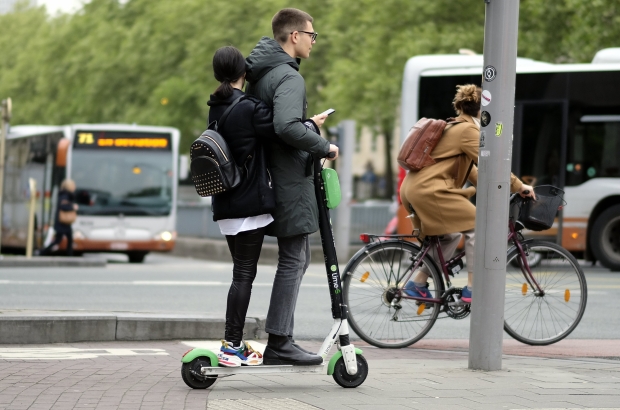- Daily & Weekly newsletters
- Buy & download The Bulletin
- Comment on our articles
Sharp rise in scooter accidents in Belgium
The number of accidents involving electric scooters is rising sharply in Belgium, according to the country’s road safety organisation, the Vias Institute, which has released its first road safety barometer for 2025.
There was an average of five accidents per day in the first quarter of this year, 62% more than in the same period for 2024. This represents 470 accidents with injuries or fatalities recorded by the police between January and March, compared to 291 in the first three months of 2024.
All regions are affected by this increase, but the rise is particularly marked in Wallonia (up 95%), where the number of accidents rose from 42 to 82. In the Brussels region, scooter accidents were 44% more common, with 127 recorded in the first quarter of 2025, compared to 88 in the same period last year.
In Flanders, the figures rose from 161 to 261 - a rise of 62%. These data do not consider accidents where the police are not contacted, for example, where a single user is injured and taken directly to hospital.
For Vias spokesperson Benoit Godart, many factors explain this upward trend, with one particularly prevalent.
"A shift has taken place," he said. "For several reasons, users have turned to buying their own scooters. It is more economical than using shared vehicles. And in Brussels, the decline in the number of free-floating vehicles available has also been a factor in the increased purchases."
But this development has brought new risks. According to Vias, two Chinese brands, Kukirin and Dualtron, pose a serious safety problem.
"While the law sets a maximum speed of 25 km/h, it is extremely easy for these models to exceed 45 km/h, or even much more," he added. "This increases the risk of accidents. And we see many of them on our streets."
A Kukirin scooter was the one used by 11-year-old Fabian in his fatal accident in the Elisabeth Park in Koekelberg in June. The Brussels public prosecutor’s office immediately sealed off a shop selling these ultra-fast scooters.
These vehicles, which do not comply with Belgian standards, are not officially available in the country, even though they were being sold illegally in this shop.
“As they are imported directly via foreign websites, it is difficult, if not impossible, to estimate their number,” said Godart.
In May, as part of the ‘2 Wheels’ awareness campaign, the Brussels-Capital/Ixelles police zone intercepted a scooter travelling at 106 km/h.
During the same campaign, Vias demonstrated that a large number of Belgians are unfamiliar with regulations governing the use of electric scooters, particularly traffic rules and technical limits.
To curb the rise in accidents, the Vias Institute has made several recommendations, namely to:
- ban the import of models exceeding 25 km/h;
- speed up the approval process for devices;
- introduce a 'curveometer' to enable police officers to measure the actual speed of scooters;
- make helmets compulsory, as a study has shown that 60% of seriously injured people ending up hospitalised suffered head trauma;
- mandate the wearing of fluorescent vests at night to improve user visibility;
- and tighten technical standards, particularly on minimum wheel size.
Vias also insists on the need to strengthen controls. This is mainly as some non-compliant models already travel at high speeds in public spaces, with the risk of increasing the number of serious accidents.
Although this is not directly related to the accident-prone nature of these Chinese models, Godart highlighted another severe problem related to their batteries, noting: “These are the same brands that can catch fire when left charging overnight.”
Conscious of the dangers posed by electric scooters, especially in summer, Wallonia’s road safety agency (AWSR) launched a campaign earlier in August to try and stop accidents, which take place especially in summer and in urban areas.
The agency, adding that most accidents take place when shared scooters collide with cars, recommends that electric scooters should be banned for the under-16s, with a maximum 25 km/hour speed limit, the wearing of high visibility vests and, ideally, no sharing of scooters at all.
Meanwhile, in Brussels, a study conducted in May showed that around 75% of scooters controlled on the roads were not being legally used because, for example, the drivers were using mobile phones.
Koekelberg mayor Olivia P’tito (Socialist) said that stricter controls were essential and that she would not rule out the enforcement of helmet wearing or banning scooter rental in Brussels altogether.
Local police have noted that scooters are increasingly used by criminals, for example drug dealers. In a recent incident in Peterbos, Anderlecht, the perpetrator fled the scene on a scooter.



















